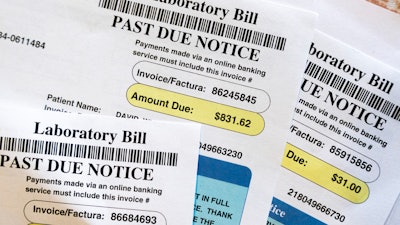
The Biden administration is pushing to prevent medical debt from being considered in most decisions made over whether someone qualifies to rent an apartment, buy a car or take on a mortgage.
The Consumer Financial Protection Bureau said Tuesday it is planning a rule that would remove medical bills from credit reports and prevent lenders from making decisions based on medical information.
The proposed rule also would prevent lenders from repossessing medical devices like wheelchairs if people cannot repay a loan.
"No one should be denied access to economic opportunity simply because they experienced a medical emergency," Vice President Kamala Harris said during a conference call laying out the planned rule.
The administration announced plans for the rule in September, and a senior administration official said they expect to finalize it early next year.
The CFPB has said that medical debt can be a poor predictor of whether someone is likely to repay a loan. Those expenses often are not planned like a car or home purchase, and patients may have little control over the progress of a serious illness.
CFPB Director Rohit Chopra also noted Tuesday that research shows billing errors frequently appear on credit reports. He said the rule would prevent debt collectors "from using the credit report as a cudgel" to force people to pay bills they may not owe.
The three national credit reporting agencies — Experian, Equifax and TransUnion — said last year that they were removing medical collections debt under $500 from U.S. consumer credit reports.
But the CFPB said Tuesday that even with that change, 15 million people still have $49 billion in outstanding medical bills in collections appearing in the credit reporting system.
The CFPB will take comments or feedback on its proposed rule until August 12.






















